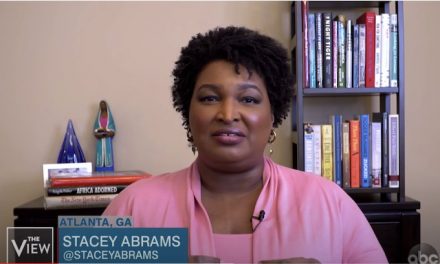The hush money scandal that is engulfing Michigan Gov. Gretchen Whitmer has a tip-of-the-iceberg feel.
Whitmer signed separation agreements with two of her top former aides, Health Director Robert Gordon and unemployment chief Steve Gray, that included large payouts and confidentiality clauses forbidding them from discussing their departure and employment. A third staffer, Deputy Health Director Sara Esty, got the severance but did not make a no-talk promise.
Whitmer went all Andrew Cuomo when asked about the extraordinary pacts at a press conference, angrily declaring them routine employment agreements and feigning offense that anyone would question their propriety.
That’s a load of bull. Such deals have never been routine in Michigan, or in the public sector in general. And the appropriateness of the buyouts is highly questionable.
“First of all, a public employee can’t have a confidentiality agreement because all of their actions and work belong to the public,” says former Gov. John Engler. “You can’t throw a shroud over the activity of somebody who held a public position and demand they say ‘I can’t talk about what I did in my public role because I signed an agreement to keep it private.'”
Engler was in office for 12 years, from 1991 to 2003, and the Legislature for 20 years before that. He says he never heard of gubernatorial appointees departing with a severance package or a confidentiality agreement.
I spoke with officials of other former administrations and got the same answer.
Dennis Muchmore, who served as chief of staff for former Gov. Rick Snyder, and John Walsh, his former budget director, could not recall anyone in that administration leaving with severance, and certainly not with a requirement they remain silent.
The closest example in the Snyder years was former Treasurer Andy Dillon, who was allowed to collect pay for his unused leave time for a couple of months after resigning.
Liz Boyd, former press secretary for Gov. Jennifer Granholm, checked with top officials of that administration and none had any recollection of an appointee leaving with the sort of deal given to Gordon and Gray.
That covers the 28 years of state government before Whitmer took over in 2018. So the justification for Whitmer’s indignation at being asked to explain such an unusual practice is hard to figure.
“My experience is that you don’t have confidentiality agreements unless it involves intellectual property,” Walsh says. “That doesn’t apply in the public sector.”
Engler notes the state constitution forbids using public money for private purposes without a two-thirds vote of the Legislature. He says the separation package with Gordon seems to be a private purpose, since it benefits Whitmer and Gordon, but not Michigan citizens.
“I would ask the governor if she has a memorandum from her legal counsel defining her authority to do this,” Engler says.
Whitmer is not likely to face an honest investigation from either Michigan’s Democratic Attorney General Dana Nessel or President Joe Biden’s Justice Department.
That leaves only the Republican-controlled Legislature to demand accountability from the governor. Lawmakers must muster what power they can to get the answers Whitmer is refusing to give.
Whitmer appears to be hiding something. The people of Michigan deserve to know what it is.
___
(c)2021 The Detroit News
Visit The Detroit News at www.detnews.com
Distributed by Tribune Content Agency, LLC.
—-
This content is published through a licensing agreement with Acquire Media using its NewsEdge technology.



















In 1965 Betty Davis starred in a Movie called Hush, Hush Sweet Charlotte.,,,,Whitmer’s version is Shush Shush, sweet Harlot. Both victims of horrifying family secrets that eventually caused their family downfall. Whimer herself is a close second to the designing of Cuomo nursing home death camps.
Cause of this hush money, imo her corruption level, puts her slightly ahead of cuomo…
AND I agree with the article where it said “YOu can’t silence public sector workers, as THEIR WORK IS in the public purvue”..
If we the U.S. keep electing corrupt self-serving politicians and DO NOT hold them accountable for their crimes,
we will become wards, servants, slaves to the damnable, dishonorable, dishonest, destructive Democrat Party. 🙁 🙁 🙁
My Governor Gretchen the corrupt, using our taxpayer money to buy the silence of the people she fired. The keep Michigan closed down, Governor Airhead, that we have. On Tucker last night, a news reporter in Michigan, has been trying to get Governor Gretchen to give him figures on the nursing home deaths from Covid, as she did a Cuomo and made nursing homes take covid positive patients, sending elderly people to their deaths. Gretchen will not release these figures. Oh, how I love the smell of corrupt manure!
One wonders, WHERE ARE THE VOTERS in that state at in CALLING FOR HER HEAD??? Where is the push to get her recalled/impeached??
There’s been a tremendous recall effort…and very successful one at that… way more signatures than what was needed and officially turned in on time. The ball was in the MOTHER DOG’S court to validate the signature with in 90 days. The time has come and gone with great stonewalling and just plane ignoring the matter (my guess using the CHINA virus excuse)…. coupled with a useless, spineless RINO lead state legislature (my guess, too much work for the RINO’s keeping in view she’s bidens VP DNC or cabinet pick) there is no one willing to push it. She’s already stated she hasn’t completed screwing up Michigan turning it into a communist supporting “reich” yet. Apparently there are no more laws binding anything in politics …unless you’re President Trump. Oh… and met with the biden team twice before the fraud election, not for VP spot as she claimed (biden already has stated it would be a “woman of color”) … but make sure Michigan was in place for all the fraud.
GLAD i am not living up there.. Otherwise i’d be looking to go apeshit on the heads of those rinos.
Another nasty old hag trying to destroy our country !